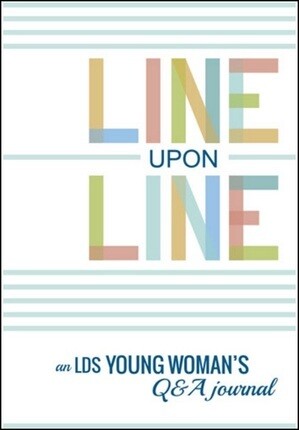Nancy had felt tired and run down for weeks. As she was writing in her journal one evening, she had a thought: “Is there any pattern to how often I feel this way?”
Searching back through her journal, she identified two other instances, each just weeks after the birth of a child, during which she felt particularly weary. This realization prompted a call to her doctor. The problem, as it turned out, was that Nancy was suffering from anemia. An iron supplement soon had her feeling her old self again.
Jamie Mendell had suffered through 10 years of yo-yo dieting and thought she’d never figure out how to lose weight and keep it off. One day, it occurred to her that in her effort to deny herself foods that would cause extra pounds, she’d also started to deny herself of activities and relationships that she enjoyed. She started a new journal and every day asked herself the question, “What is it that will make you happy right now?”
As the responses added up, she began to turn dreams into reality. She booked a trip to France with friends, then canceled her gym membership and started taking long walks in the park instead. As Jamie continued to dream about and then do things that gave her joy, over the next two years, she dropped 40 pounds “almost effortlessly.”
The Surprising Health Benefits of Journaling
Elder Richard G. Scott has counseled, “Write down in a secure place the important things you learn from the Spirit. You will find that as you write down precious impressions, often more will come.” (Richard G. Scott, “To Acquire Knowledge and the Strength to Use It Wisely,” Ensign, June 2002, 32; or Liahona, Aug. 2002, 12, 14).
Both Nancy and Jamie’s experiences illustrate how this happens. For each, the act of writing in a journal facilitated personal revelation that improved her life in healthy ways. It’s a phenomenon that is common in journaling, but that we often fail to recognize.
According to the Center for Journal Therapy, “reflective journal writing” has been used effectively to help individuals suffering from grief and loss, recovering from addiction, or battling eating disorders. Other studies have reported that journal writing can result in health-related benefits that range everywhere from improved lung function to reductions in pain intensity ratings after surgery. Research has shown that journal writers can experience improved sleep, reduced blood pressure, improved memory, and accelerated physical performance.
How to Fit Journaling into Your Busy Life
Journal-writing doesn’t need to be very time-consuming. An individual who is trying to lose weight can significantly improve his or her chances for success merely by jotting down a list of everything they eat or drink.
For instance,in one study that asked participants to restrict calories, exercise regularly, keep a food journal, and attend weekly support groups, the best predictor of success was not how many minutes per day the person exercised or how vigilant they were at restricting calories but how consistently the participant wrote in their food journal. By taking just moments to write down a list of foods eaten, these weight loss study participants significantly impacted their ability to shed pounds.
The perspective that journal-writing gives us trims out some of the emotion, the judgment, the distress, or the pain from a situation, allowing us to see it in a new light. This “self-talk” that goes on in our heads when we are writing for ourselves can have a significant positive impact by refocusing our priorities, helping us vent our unhealthy emotions and prompting positive changes in behavior. When journaling becomes a regular habit, it can also reinforce the continuation of other healthy habits and help them “stick.”
However, it can also backfire if all you ever use your journal for is a list of complaints or a place to dredge up unhappy experiences. “You risk getting into a sort of navel-gazing or cycle of self-pity,” warns Dr. James Pennebaker, a pioneer in the field of “journal therapy.” “But standing back every now and then and evaluating where you are in life is really important.” It was for this reason that President Kimball often encouraged church members to keep a journal. “What could you do better for your children and your children’s children,” he asked, “than to record the story of your life, your triumphs over adversity, your recovery after a fall, your progress when all seemed black, your rejoicing when you had finally achieved?”
Different Types of Journaling to Try
If you are new to the idea of journaling, you can begin with something as simple as a line-a-day or Q&A journal. These journals are designed with a one-sentence question prompt, which you answer with one or two sentences of your own. You then compare your thoughts about the same question a year later. They are simple to use, and lots of fun to write in.
For example, Line Upon Line: An LDS Young Woman’s Q&A Journal includes uplifting prompts like “Record the kindest text message you have received this week” or “What do you do better than 90 percent of people you know?” and encourages a young woman to remember and re-live positive experiences. Because you come back to answer the same question each year for six consecutive years, you get a picture of your progress, the improvement in your abilities, and the growth of your testimony over the course of the next six years.
Simply scribbling down a paragraph or two about everyday life events may be powerful enough to help you improve your health, but you can approach the format of your journal from a little bit more creative angle if you are aiming to improve your health, your relationships, or your work in a specific area:
- Keep a Journal of Awesomeness. Jot down 2-3 things you have accomplished during the last 24 hours. Doing so allows you to experience the pleasure of accomplishment twice and is a great way to boost self-esteem or recognize the gifts and talents you have been given. Read over your journal of awesomeness when you feel discouraged or need a reminder of what you are capable of accomplishing as a child of God.
- Keep a Healthy Habits Diary to help encourage consistency in healthy lifestyle choices. Write down a bullet list of just two or three healthy choices you make every day. This can be everything from “I sat on the porch to eat an orange and watch the sun set” to “I substituted a hike in the canyon with the kids for my usual 30 minutes on the elliptical,” or “I chose fresh fruit for lunch instead of fries and it tasted phenomenal!” The consistency of writing in your journal every day will help you create consistency in making healthy lifestyle choices as well.
- Assemble a Windshield Romance Journal with the help of your spouse or romantic interest. At least once a week, jot down a short “love note” on a simple piece of notebook paper that expresses appreciation for something your spouse did for you, a romantic idea for your next date, or just a compliment. Place your note under the windshield wiper of your partner’s car for them to find. They can reciprocate by randomly leaving notes under your windshield wiper as well. Each of you can store your letters in the glove compartment of your car and after a few months, compile them together chronologically in a binder by slipping the notes into plastic sleeves. This precious record of your budding romance will pay dividends by improving the health of your overall relationship.
- A Gratitude Journal is a powerful tool for improving overall well-being. One study documented the fact that students who wrote about things they were grateful for improved their ability to sleep well (Emmons, Robert A., and Michael E. Mccullough. "Counting Blessings versus Burdens: An Experimental Investigation of Gratitude and Subjective Well-being in Daily Life." Journal of Personality & Social Psychology 84, no. 2 (2003): 377-89). Use a purchased gratitude journal, a notebook, or better still, your favorite mobile app to regularly document 3-5 things you are grateful for. The advantage of an app is that you can instantly include photos to document happy moments. Gratitude journaling cuts your risk of depression by half, encourages you to eat more healthily, and evenimproves your interpersonal relationships.
- An “I Solved This” Work Journal can document things you’ve learned on the job and help you overcome making mistakes. It’s a great tool for keeping track of successes you’d like to discuss at your next performance review. This journal can be kept easily with a simple Google Document you can access both from work and at home. Health psychologist Kelly McGonigal teaches that stress is not the enemy and is not harmful to your health unless you have a mindset that it is. As you record stressful events that occur at work, watch for examples of ways your body’s stress response naturally helped you elevate your level of courage, your attention to detail, and your ability to collaborate with co-workers to find solutions to problems. Over time, you’ll begin to recognize how your body’s stress response can help you rather than being a hindrance to your work. This can have significant ramifications for your overall cardiac health.
- Keep a Scripture Journal to write down impressions and ideas that come to you as you study and ponder the scriptures. “As I studied the scriptures and wrote things in my journal afterward, I would look down at what I had written and say, ‘That is not me who wrote that.’ It was personal inspiration given directly to me from God. I have received answers to prayers and counsel for my life on things that I need to do better. I had no idea revelation worked that way,” writes Robbie, an Aaronic Priesthood holder.
When Jamie Mendell asked herself, “What will make you happy right now?” and then began journaling about the answers, she was essentially allowing herself some moments of meditative mindfulness. By engaging her brain with time to consider her life’s experiences in a non-judgmental way, she allowed her brain the space it needed to ponder whether she was getting the most out of her life. And whether you use your journal to document the smell of the blossoms on the trees outside of your window or to cope with the pain of your recent cancer diagnosis, it’s a powerful way to give additional meaning and context to your life. Nephi said it this way: “Having had a great knowledge of the goodness and mysteries of God, therefore I make a record of my proceedings in my days” (I Nephi 1:1). Knowledge of the profound impact this simple habit will have on your physical and emotional health, your relationship with God, and your interactions with others just may inspire you to get a notebook and start your own record today.
Check out Line Upon Line: An LDS Young Woman’s Q & A Journal for more great tips and helpful journal prompts from Lynnae Allred.


